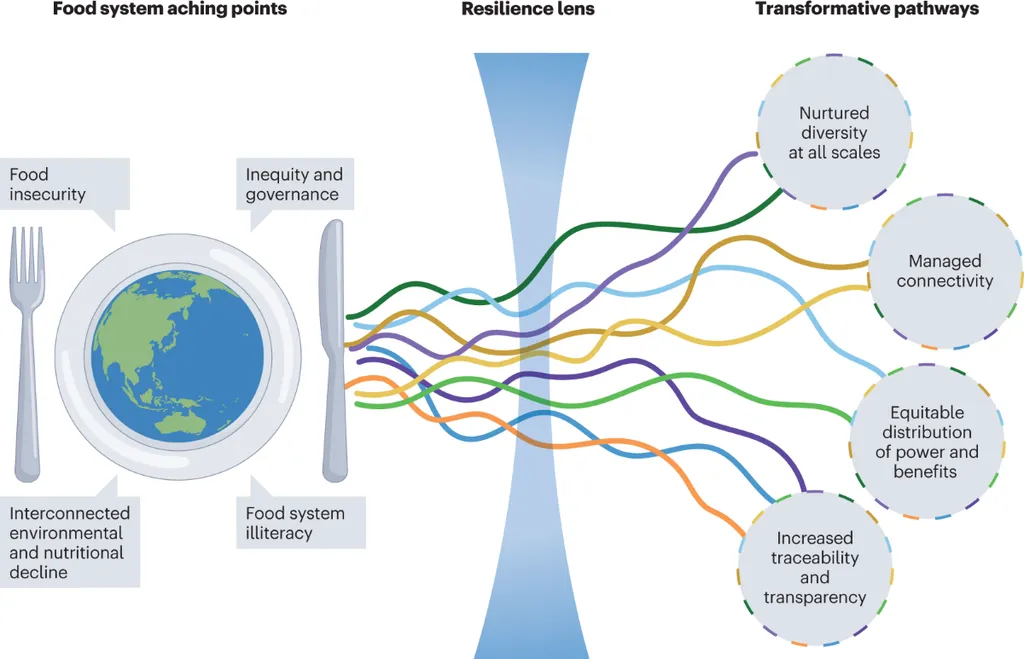In an era where climate change and geopolitical tensions are reshaping global food systems, a new study published in *Frontiers in Sustainable Food Systems* (translated to English as “Frontiers in Sustainable Food Systems”) offers a compelling roadmap for enhancing food security and trade resilience. Led by Fuyou Guo, this research delves into the intricate web of sustainable agricultural systems, international trade, and agricultural policies, providing insights that could redefine how nations approach food sovereignty and commercial agriculture.
The study underscores the critical need for integrated policies that balance local food security with global trade dynamics. “Sustainable agriculture is not just about producing more food; it’s about creating resilient systems that can withstand shocks and ensure food accessibility for all,” says Fuyou Guo, the lead author of the study. This perspective is particularly relevant as countries grapple with the dual challenges of feeding growing populations and mitigating the impacts of climate change.
One of the key findings highlights the importance of diversifying agricultural practices to enhance resilience. By adopting a mix of traditional and modern farming techniques, countries can reduce their vulnerability to climate-related disruptions. For instance, integrating crop rotation, agroforestry, and precision agriculture can improve soil health, increase yields, and minimize environmental degradation. These practices not only bolster food security but also create new commercial opportunities for the agricultural sector.
The research also emphasizes the role of international trade in ensuring food security. “Trade is a vital component of food security, but it must be managed in a way that supports sustainable practices and protects local food systems,” Guo explains. The study advocates for policies that promote fair trade practices, reduce tariffs on essential food items, and encourage the exchange of agricultural technologies and knowledge. Such measures can help countries build more resilient food systems while fostering economic growth.
Moreover, the study calls for a shift towards food sovereignty, where communities have greater control over their food systems. This approach involves supporting local farmers, promoting sustainable farming practices, and reducing dependence on imported food. By empowering local communities, countries can enhance their food security and reduce the economic and environmental costs associated with long-distance food trade.
The implications of this research extend beyond the agricultural sector, impacting the energy sector as well. Sustainable agricultural practices often require innovative energy solutions, such as renewable energy for irrigation and precision farming technologies. As countries invest in these technologies, they can create new markets and commercial opportunities, driving economic growth and job creation.
The study published in *Frontiers in Sustainable Food Systems* serves as a timely reminder of the interconnectedness of food security, sustainable agriculture, and international trade. By adopting a holistic approach that integrates these elements, countries can build more resilient food systems that are better equipped to withstand the challenges of the 21st century. As Fuyou Guo aptly puts it, “The future of food security lies in our ability to adapt and innovate, creating systems that are sustainable, equitable, and resilient.”

